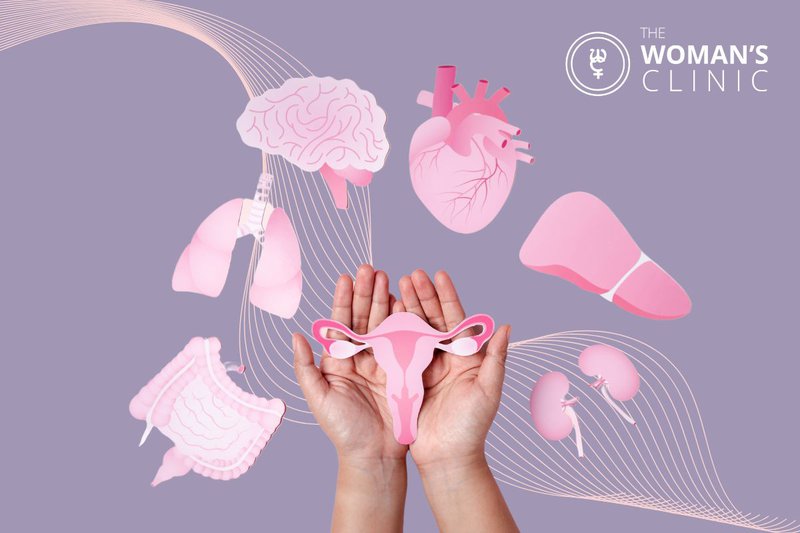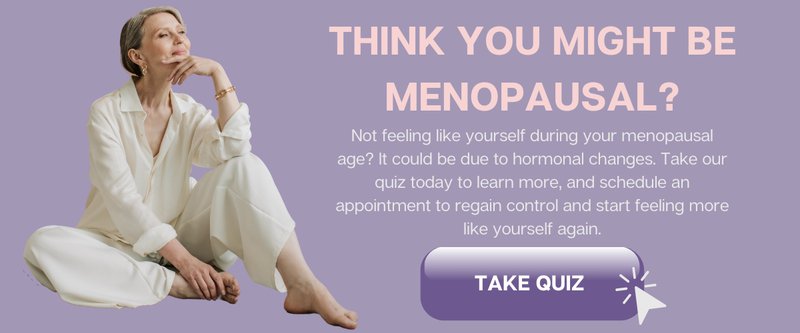Experiencing menopause before 40 can be confusing and distressing. If you're noticing unexpected changes in your body—irregular periods, hot flashes, or mood swings—you could be facing premature menopause. This condition affects many women and has serious health implications. Recognizing the first signs early can help you manage your health more effectively.
Key Takeaways
- Premature menopause occurs before age 40; early menopause happens before 45.
- Affects 1% of women (premature) and 5% of women (early menopause).
- Primary ovarian insufficiency (POI) is different from premature menopause; women with POI may still ovulate and become pregnant.
- Causes may include genetics, autoimmune diseases, infections, surgery, chemotherapy, or radiation; in 50% of cases, the cause is unknown.
- Symptoms include irregular periods, hot flashes, night sweats, vaginal dryness, mood swings, memory issues, weight gain, and joint pain.
- Diagnosis involves hormone tests (FSH, estrogen, thyroid, prolactin).
- Hormone replacement therapy (HRT) is the most common treatment; other options include lifestyle changes and supplements.
- Increased risk of osteoporosis, heart disease, cognitive decline, and mental health concerns.
- Pregnancy is rare but possible with IVF and donor eggs.
- Lifestyle changes (diet, exercise, stress management) can help manage symptoms.

Premature Menopause versus Early Menopause
Premature menopause occurs when a woman stops having periods before age 40. Early menopause happens before age 45. Both mean the ovaries stop functioning sooner than expected, leading to lower estrogen levels.
Menopause before 40 is rare, affecting only 1% of women. Early menopause is more common, impacting about 5% of women. Some experience menopause in their 30s or even 20s, though this is extremely rare.
Primary ovarian insufficiency (POI), sometimes called premature ovarian failure, is not the same as premature menopause. Women with POI may still ovulate and conceive, but their ovaries do not function consistently. Premature menopause, however, marks a permanent end to fertility.
Medical treatments such as surgery, chemotherapy, or radiation can trigger menopause before 40. Other contributing factors include autoimmune diseases, infections, or genetics. In about 50% of cases, the cause remains unknown.
Causes of Premature and Early Menopause
Several factors can lead to early menopause, though in about half of cases, the exact reason is unclear.
Genetics and Family History
If your mother or sister experienced early menopause, you may be at higher risk. Certain genetic conditions, such as Turner syndrome or Fragile X syndrome, can cause ovarian failure. Specific genetic mutations may also contribute.
Cancer and Medical Treatments
Cancer treatments can damage the ovaries. Chemotherapy and radiation may destroy eggs, leading to an earlier menopause. The risk depends on the treatment type, dosage, and age. Some women regain their periods after treatment, but fertility may still decline.
Autoimmune Diseases and Infections
The immune system can mistakenly attack the ovaries, leading to ovarian failure. Conditions such as thyroid disease, rheumatoid arthritis, and lupus have been linked to early menopause. Certain infections, like mumps, HIV, or tuberculosis, may also harm the ovaries, though this is rare.
Surgical Causes
Removing the ovaries (oophorectomy) results in immediate menopause. A hysterectomy (removal of the uterus) may also lead to early menopause, even if the ovaries remain. Reduced blood supply to the ovaries after surgery can accelerate estrogen loss.
Lifestyle Factors and Unknown Causes
Smoking increases the risk of early menopause by damaging ovarian tissue. Some studies suggest that being underweight or following an extremely restrictive diet may contribute as well. In many cases, the exact cause remains unclear.
Symptoms and Signs of Premature Menopause
The first signs of premature menopause often involve irregular periods. You may skip cycles, experience heavier or lighter flow, or notice unpredictable timing. This happens as estrogen levels fluctuate, disrupting the menstrual cycle.
Other early symptoms include hot flashes and night sweats. You may feel sudden heat surges, especially in the face, neck, or chest. Night sweats can interfere with sleep. These symptoms arise from hormonal fluctuations affecting body temperature regulation.
Vaginal dryness and discomfort during sex are common. Declining estrogen levels thin vaginal tissues, causing irritation, pain, and an increased risk of urinary tract infections (UTIs). Mood swings and difficulty concentrating may also occur. Estrogen influences brain function, so its decline can lead to anxiety, depression, or "brain fog." Some women struggle with memory or focus.
Physical changes include hair thinning, dry skin, and weight gain. Estrogen helps regulate metabolism and skin moisture, so as levels drop, hair may shed more easily, skin can become drier, and fat storage may shift to the abdomen. Other potential symptoms include joint pain and headaches. Estrogen helps keep blood vessels and joints healthy. Without it, stiffness, migraines, or body aches may develop.
If these symptoms occur before age 40, consult a doctor. A medical evaluation, including hormone tests, can confirm premature menopause. Early treatment may improve long-term health outcomes and reduce risks like bone loss and heart disease.
For further reading on menopause effects, visit 7 Side Effects of Menopause.
Premature Menopause and Pregnancy
While rare, pregnancy is still possible for some women with premature menopause. If primary ovarian insufficiency (POI) is the cause, ovulation may happen sporadically. However, for most, natural conception becomes difficult due to diminished egg supply.
Fertility Treatments
In vitro fertilization (IVF) with donor eggs provides the highest chance of pregnancy. Since egg reserves are low or depleted, using donated eggs increases success rates.
For women who still ovulate occasionally, hormone therapy or ovulation-inducing medications may help release eggs. A fertility specialist can tailor recommendations based on hormone levels and ovarian function.
Egg Freezing
Egg freezing is only possible before menopause starts. If you are at risk for early menopause due to medical treatments or family history, freezing eggs in your 20s or early 30s can provide future pregnancy options. Once menopause begins, eggs can no longer be retrieved.
Exploring treatment options early may improve the chance of conceiving. For those unable to conceive naturally, options like IVF with donor eggs, surrogacy, or adoption can help build a family.

Finding Support for Premature Menopause
Premature menopause can be both physically and emotionally challenging. Seeking support can help with coping and symptom management.
Addressing the Emotional Impact of Early Menopause
Mood swings, anxiety, or feelings of loss are common. Speaking with a therapist can provide tools to manage these emotions. Support from friends or connecting with others who have experienced the same thing can also be helpful.
Prioritizing self-care, such as regular exercise, a nutritious diet, and good sleep habits, may improve emotional well-being. Practices like meditation or journaling can reduce stress.
Managing Symptoms With Specialists
Doctors specializing in menopause can recommend treatments to maintain the quality of life. A gynecologist or endocrinologist can assess whether hormone therapy or other medications are appropriate.
Mental health professionals, such as therapists trained in menopause-related emotional health, can assist with challenges like anxiety or depression. If needed, ask your doctor for a referral.
Premature menopause affects health, fertility, and emotional well-being. Possible causes include genetics, medical treatments, or autoimmune diseases. Symptoms range from hormonal changes to bone loss. Diagnosis requires hormone tests, and management may involve hormone therapy and lifestyle adjustments.
Addressing symptoms early can improve long-term health. Seeking guidance and finding support networks make the transition smoother. If you're experiencing potential signs, consult a specialist to explore your options.
Navigating Premature Menopause
Experiencing menopause before the age of 40 can be overwhelming, bringing unexpected symptoms like hot flashes, mood changes, and fertility challenges. At The Woman’s Clinic in Little Rock, our experienced team is here to provide guidance, support, and treatment options tailored to your needs. Contact us today to schedule a consultation and take control of your health.

